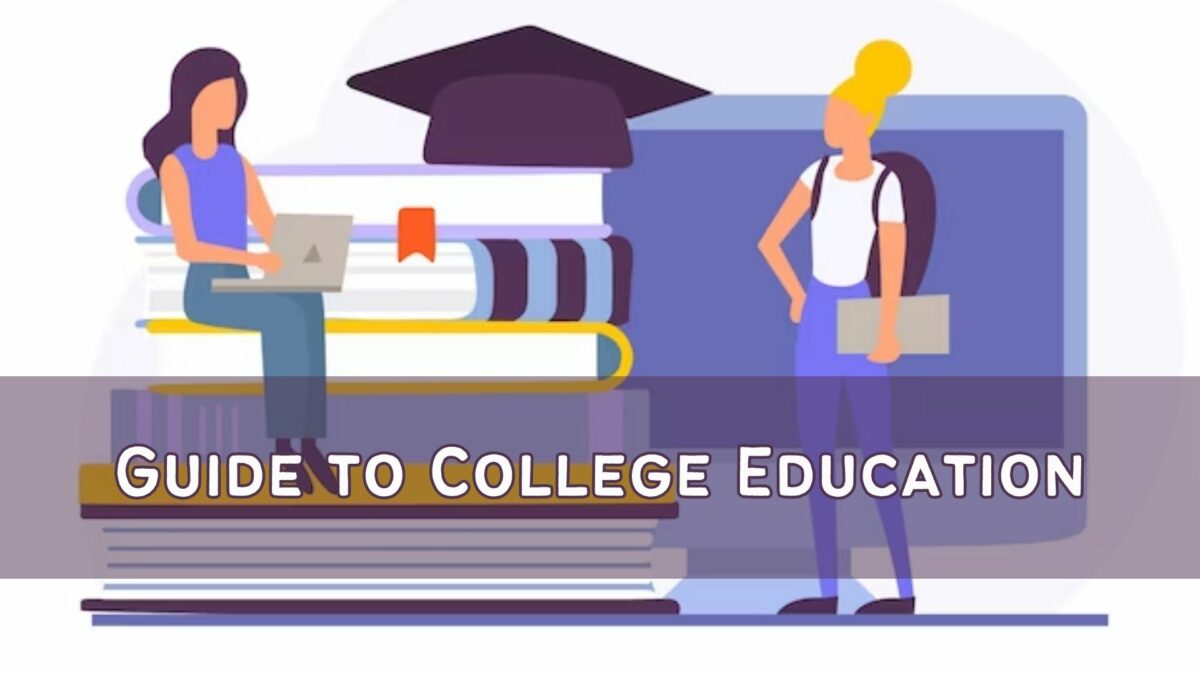“I believe that we parents must encourage our children to become educated, so they can get into a good college that we cannot afford.”
— Dave Barry
As soon as the nurse hands you your bundle of joy for the first time, your first thought isn’t “How sweet! She looks just like me!” or “I’m glad this isn’t the milkman’s son.” Instead, you think “Holy smokes! How am I going to put this kid through college?”
Before you start considering places where you can hock your kidney to put your pride and joy through a college education, you’ll probably want to look at some other alternatives to putting a mortarboard on your kid’s dome which don’t involve bathtubs full of ice.
Fortunately for you, the government thinks that sending your child off to college is a pretty good idea. If the government tells you that something is good, then it must be good, right?
Well, we’re here to give you both sides of the argument and to guide you to take a little bit of the pain away from sending the kid off to college.
Before we get started through this ultimate guide, though, let me tell you one thing that you won’t find here: information about how to borrow a bunch of money to pay for college. If you want to find information about Sallie Mae or PLUS Loans, go back to Google and check the next website on the results page, because you’re not getting anything out of me.
Here we go!
Part 1: Sending My Child to College is Good!
Part 2: Nope, College is a Waste of Time
Part 3: Get Them to Pay Their Own Way!
Part 4: Go to College for Free
Part 5: Take the Bite Out of Paying for College
Part 6: How Much Should I Save? Which Method is Right for Me?
Part 1: Sending My Child to College is Good!

Hey, I went to college. I had so much fun getting hazed plebe year that I decided I wanted to see what a non-military college was like, and went to business school. I got paid more in my post-college jobs than I did working at Kroger and Winn Dixie in my pre-college jobs (except for the first 18 months of my previous startup). The return on investment (ROI) of my education was positive. Here are some other arguments about why going to college is good for your progeny.
- It’s not college that matters, but your major. Michael Kitces makes a great argument that we’re measuring the wrong thing in the employment rates of college versus non-college graduates. If you have a degree in 13th century Antarctic literature, you’re probably unemployable and have no common sense. If you have a degree in mechanical engineering, you’re probably in high demand.
- Understand the difference between a valuable education and a useless one. This excellent article in one of my favorite websites, Control Your Cash, written by an anonymous physician underscores the difference between going into debt to pay for a medical degree (probable high ROI) versus a degree in metaphysics (probable negative infinity ROI, although you can argue with the best of them about the injustice of it all).
- College degrees protect you more during recessions. Recessions are bad and when lots of people lose their jobs, right? According to this research by the Pew Charitable Trust, pulling data from the Census Bureau, recessions hit under- or uneducated much more than they do college graduates. It reminds me of the truism that I heard a lot in graduate school – down economy, go back to school.
- Graduating from college means you’ll be healthier. While it’s easy to argue that there are other correlative factors (meaning if you’re smart enough to go to college, you’re probably smart enough not to down Big Macs, 72 oz Cokes, and bags of Doritos every day) in determining health, college education, according to the American Medical Association, has a positive correlation with your overall healthiness later in life. That is, of course, assuming your liver remains in tact after those benders during rush week.
Part 2: Nope, College is a Waste of Time.

There are also some pretty strong arguments that taking four years of productive income-earning potential away during the early years of your kid’s life are an overall negative to the future well-being of your child. Einstein thought that the most powerful force in the universe was compound interest (if only it was so easy to take a penny a day and double it), and you’re yanking at least four years away from your child’s ability to compound the bank account. Maybe this isn’t such a bright idea after all.
- Don’t send your kids to college! James Altucher does the math showing how investing the money you’d spend to give your child the diploma from State U may wind up providing a better return on investment than the piece of paper, the memories of the wild frat parties, and the long, endless lectures.
- Four charts that argue against a college education. There are lies, damn lies, and statistics. Jeff Gundlach shows a ton of statistics which could potentially scare any fiscally responsible parent into screaming in fear at the thought of sending their kids off to college. Can you say education bubble?
- Peter Thiel, the guy who founded PayPal, will pay people not to go to college. Peter Thiel made a shed, bucket, and yachtload of money off of founding and selling PayPal. Granted, he has a law degree from Stanford, but he thinks highly enough of not going to college that he pays 24 kids $100,000 a year not to go to college, but to found startups instead.
- Don’t pay for your kids’ college. In this article, I examine research from UC-Merced which shows that kids who get their college paid for don’t do as well in college, which negatively affects their subsequent careers. The worst of all worlds! You scrimp and save to send the kid to college, and you get a boomerang in return!
Part 3: Get them to pay their own way!
Why should you put your blood, sweat, tears, and hard-earned money into paying for four years of pretty much repeating everything that the kid learned in high school when you can get the young ‘uns to do it themselves! For a little while, I used to play the game The Sims (#aff). Sadistic me liked to make the kids work in the basement making paintings and sculpture so that I could afford to throw wild parties and get all of the other Sims in the neighborhood to come over and yuk it up with me. Thusly is this section inspired.
- Code Academy. Malcolm Gladwell argued in his book Blink (#aff) that the reason Bill Gates got ahead was that he had 10,000 hours of practice programming before he ever went to college. Code Academy gives your kids the opportunity to gain those 10,000 hours for free! If you think that programming as a kid is useless, check out Ethan Duggan, a 12 year old mobile app developer who was featured at South By Southwest (full disclosure: his dad and I worked together at Capital One and the software development company I co-founded)!
- Massively Open Online Courses. Massively open online courses (MOOCs) are the latest craze in education for everyone. They’re free and offered by some of the best universities in the world, such as Harvard, University of Virginia (my MBA alma mater), and Georgia Tech. Train them young, guide them early, help them find their muse, and they might be able to audit some of college, decreasing the time and cost to attend, and they might avoid wasting years switching majors.
- Translating your MOOC credits into college credits. There aren’t many ways to do it, and the process is tedious, but for the right schools, it’s apparently possible to do so. This may be a viable way to at least knock out core courses and transfer credits into the school your kid really wants to go to. Also, you should search for “credit by examination” on Google to see a list of colleges which accept using exams as a shortcut for courses.
- Teach your kids to be entrepreneurs. If Junior can make his first billion by age 15, then you won’t have to worry about paying for college; he could become a professional student for the rest of his life with nary a problem. This guide gives you some hints on how to light the entrepreneurial fire in your kid’s belly.
Part 4: Go to college for free.

You’ve decided. College or bust for the little bundle of joy. Why pay full rack rate for a college tuition if you can get it for free? Here is guide of some resources for finding ways to make college a free ride.
- The United States Military Academy. Yes, I’m biased. I’m a graduate of West Point. The saying is that it’s a $250,000 education given back to you a nickel at a time, shoved up your backside. There is a five year military commitment at the back end of graduation, but my family and I didn’t pay a dime for me to attend. I even got paid a little while I was there. Nothing says free education like being able to tell your friends while you’re on Spring Break that your per diem stipend was paid for by their tax dollars! Some other, lesser known military academies include the United States Air Force Academy and the United States Naval Academy.
- The Fastweb college scholarship search engine. If there’s a scholarship out there which your kid could potentially qualify for, then Fastweb is going to have it listed and guide you find it. Don’t pay anyone for scholarship searches. OK. Maybe you can pay your kid $1 an hour to find his or her own scholarships through this search engine.
- The World Association of Cooperative Education Best of Coop Guide. Co-op programs enable college students to spend six months studying and then six months working in their actual fields of study. Imagine that – getting paid to get real-world, applicable work experience rather than just having a bunch of textbooks from ivory tower professors shoved into your brain! This guide lists a lot of details about co-op programs. Don’t waste your time on parts 1 and 2, though, and, admittedly, this looks like a pay-to-play advertisement for these schools’ programs; however, it’s still very useful information.
Part 5: Take the Bite Out of Paying for College

The only guarantees in life are death and taxes, and free college education does not fit into one of those two categories, although you may think that trying to pay for college will cause the death of you. It will take some sacrifice, let’s not kid ourselves (no pun intended), but it’s possible to at least reduce the pain involved in doing so. Here is guide of some of the ways in which the tax code helps you to pay for college.
- An introduction to 529 plans. The Securities and Exchange Commission (I always modify Eminem’s lyrics to “The SEC won’t let me be…” when I think of them) has a good guide explaining the difference between a 529 plan and a prepaid college tuition plan as well as the tax advantages and implications that saving money in a 529 plan has for the parents and the students.
- 529 plans by state. Rather than make your eyes pop with a list in the middle of this guide, I created a separate reference page for you to find your state’s plan.
- What you should look for in a 529 plan. Four don’ts and three dos to follow when examining 529 plans.
- The Coverdell Education Savings Account (ESA). The kissing cousin to the 529 plan is the Coverdell Education Savings Account. The Internal Revenue Service gives you a good overview of them, including the rules and limitations of using the ESA.
- Comparing 529 savings plans, 529 prepaid tuition plans, and Coverdell ESAs. The Motley Fool has a very comprehensive comparison table to help you get a grasp on the differences between the three savings plans.
- Get rich uncle Willy to pay for college. Yes, if you have a rich relative who wants to fund State U., it’s possible for that rich relative to pay tuition directly to the school and not be subject to a gift tax. Don’t look a gift tax horse in the mouth.
- Tuition and fees deductions. How to take advantage of tax breaks that the Internal Revenue Service gives you when you pay for your own schooling or for your kids’ education.
Part 6: How Much Should I Save? Which Method is Right for Me?
This is a vexing question. With the continued inflation of college education, it seems like “more is better” is the simplest answer to provide to guide. However, this isn’t generally good, universal, blanket advice, because every situation is different. Your income, own retirement savings, debt, and other factors affect what the answer is for you and your family.
You’re probably best off spending a few hours with a qualified financial planner (ahem). I’d be happy to help. All you have to do is contact me.
Author Profile
- John Davis is a nationally recognized expert on credit reporting, credit scoring, and identity theft. He has written four books about his expertise in the field and has been featured extensively in numerous media outlets such as The Wall Street Journal, The Washington Post, CNN, CBS News, CNBC, Fox Business, and many more. With over 20 years of experience helping consumers understand their credit and identity protection rights, John is passionate about empowering people to take control of their finances. He works with financial institutions to develop consumer-friendly policies that promote financial literacy and responsible borrowing habits.
Latest entries
 Low Income GrantsSeptember 25, 2023How to Get a Free Government Phone: A Step-by-Step Guide
Low Income GrantsSeptember 25, 2023How to Get a Free Government Phone: A Step-by-Step Guide Low Income GrantsSeptember 25, 2023Dental Charities That Help With Dental Costs
Low Income GrantsSeptember 25, 2023Dental Charities That Help With Dental Costs Low Income GrantsSeptember 25, 2023Low-Cost Hearing Aids for Seniors: A Comprehensive Guide
Low Income GrantsSeptember 25, 2023Low-Cost Hearing Aids for Seniors: A Comprehensive Guide Low Income GrantsSeptember 25, 2023Second Chance Apartments that Accept Evictions: A Comprehensive Guide
Low Income GrantsSeptember 25, 2023Second Chance Apartments that Accept Evictions: A Comprehensive Guide

